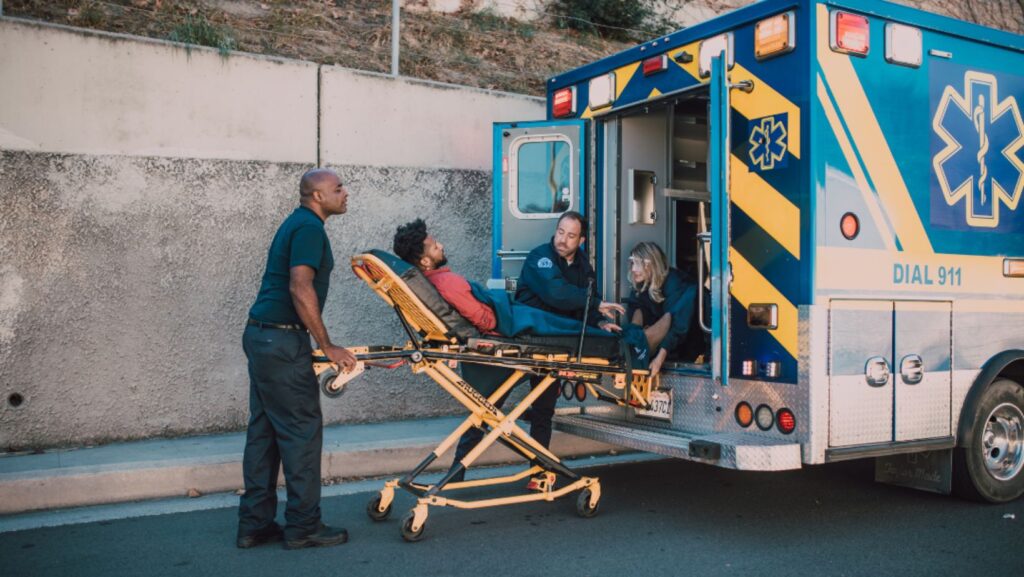Navigating the complexities of Medicare coverage can be challenging, especially when it comes to understanding what services are covered under different parts of Medicare. Ambulance services are a critical healthcare necessity, and it’s essential for Medicare beneficiaries to know how they are covered. In this post, we are going to explore the specifics of Medicare Part B coverages in relation to ambulance services.
Understanding Medicare Part B
Medicare Part B, often referred to as medical insurance, is part of the Original Medicare and covers two primary types of services: medically necessary services and preventive services. It helps cover costs for things like doctor visits, outpatient care, home health care, and other medical services, including durable medical equipment.
When it comes to Medicare Part B application status, keep in mind that enrollment is automatic if you are already receiving Social Security benefits. Otherwise, you might need to sign up during your initial enrollment period.
Medicare Part B and Ambulance Services
Medicare’s coverage of ambulance services typically falls under Medicare Part B units. This is because ambulance services are considered a form of outpatient care—since they are used to transport you to a medical facility without an admission to a hospital.
Yes, Medicare Part B does cover ambulance services, but there are particular conditions and requirements that must be met:
- The ambulance transport must be medically necessary, meaning it is required to diagnose or treat a health condition.
- The transport must be to the nearest appropriate medical facility that can provide the care you need.
- If you require a specialized hospital, burn unit, or another facility that is farther away, Medicare will cover transportation to that location if it’s medically necessary.
It is crucial to understand your Medicare Part B status to be aware of your eligibility and the extent of your coverage for ambulance services.
When Does Medicare Part B Cover Ambulance Services?

Here are some instances when Medicare Part B covers transportation by ambulance:
- During an emergency where your health is in serious danger, and any other mode of transportation (like a car or taxi) would endanger your health.
- If you’re confined to a bed before and after the ambulance trip.
- If you need medical monitoring or treatment during transportation.
What Medicare Part B Does Not Cover
There are limitations to the coverage of ambulance services under Medicare plans. For example:
- Non-emergency ambulance services when other transportation methods could have been used without endangering your health.
- Ambulance transportation to a facility that is not the nearest one capable of providing adequate care.
Costs and Additional Coverage
Medicare beneficiaries are responsible for paying a 20% coinsurance of the Medicare-approved amount for ambulance services, and the Part B deductible applies. For those with a Plan B Medicare supplement (Medigap), out-of-pocket costs for these services may be lower or even covered in full, depending on the specifics of the plan.
Keeping Informed
For detailed information about your coverage and any updates to the Medicare Part B coverages, it’s important to check the latest updates from Medicare or speak with a Medicare representative.
In summary, while Medicare Part B does cover ambulance services, it only does so under specific conditions. Always double-check your coverage to avoid unexpected expenses, and consider additional coverage like Plan B Medicare supplement for more comprehensive protection.
Remember, understanding your health coverage is crucial for making informed decisions in an emergency. Don’t hesitate to contact a Medicare representative or a professional advisor to clarify any doubts or for assistance regarding your Medicare coverage.
Frequently Asked Questions
Does Medicare Part B cover ambulance transportation in all situations?
Medicare Part B typically covers ambulance transportation in cases where it’s deemed medically necessary. However, coverage may vary based on factors such as the reason for transport and the type of ambulance service required.
What types of ambulance services does Medicare Part B cover?
Medicare Part B generally covers both emergency and non-emergency ambulance services when they’re deemed medically necessary. This includes transportation to a hospital, skilled nursing facility, or any other medical facility for necessary services that can’t be provided at the patient’s location.
How much does Medicare Part B cover for ambulance services?
Medicare Part B typically covers 80% of the Medicare-approved amount for ambulance services after the yearly Part B deductible is met. Beneficiaries are responsible for the remaining 20%, unless they have supplemental insurance that covers this cost.
Are there any conditions or requirements for Medicare Part B coverage of ambulance services?
To qualify for coverage, ambulance transportation must be considered medically necessary, meaning that other forms of transportation (such as personal vehicles or taxis) would endanger the patient’s health. Additionally, the ambulance provider must be Medicare-certified.
Are there any situations where Medicare Part B may not cover ambulance services?
While Medicare Part B typically covers ambulance transportation deemed medically necessary, there are some situations where coverage may be limited or denied. For example, if the transport is not considered medically necessary, such as for routine check-ups or transportation to receive preventive care, Medicare may not cover the service. Additionally, if the ambulance provider is not Medicare-certified, coverage may be denied.



